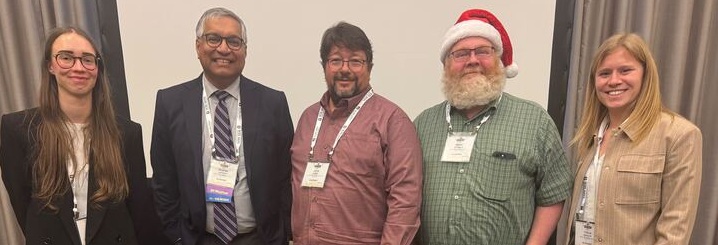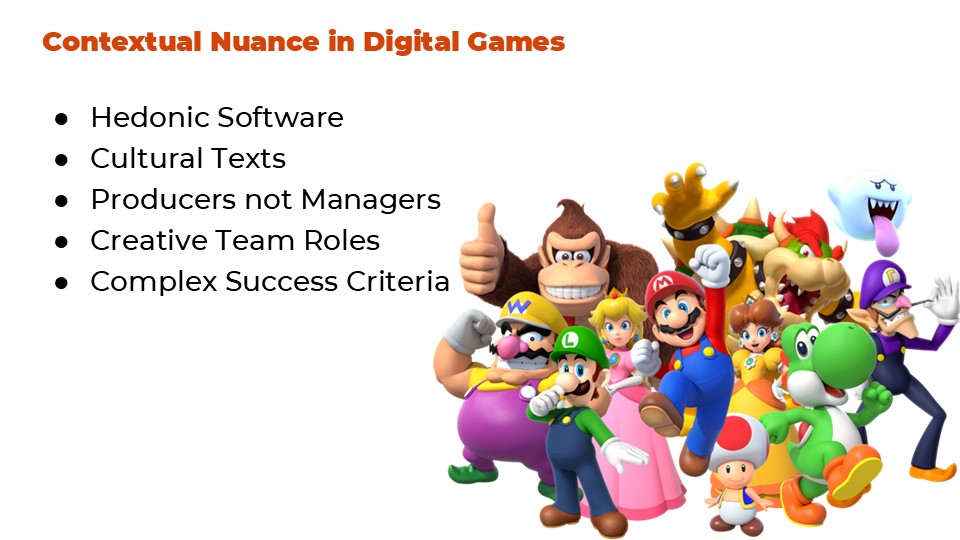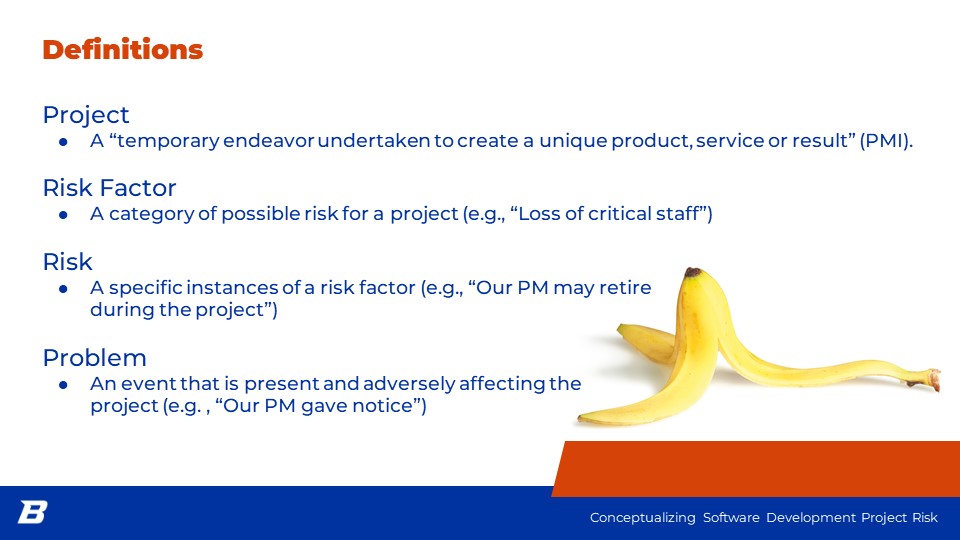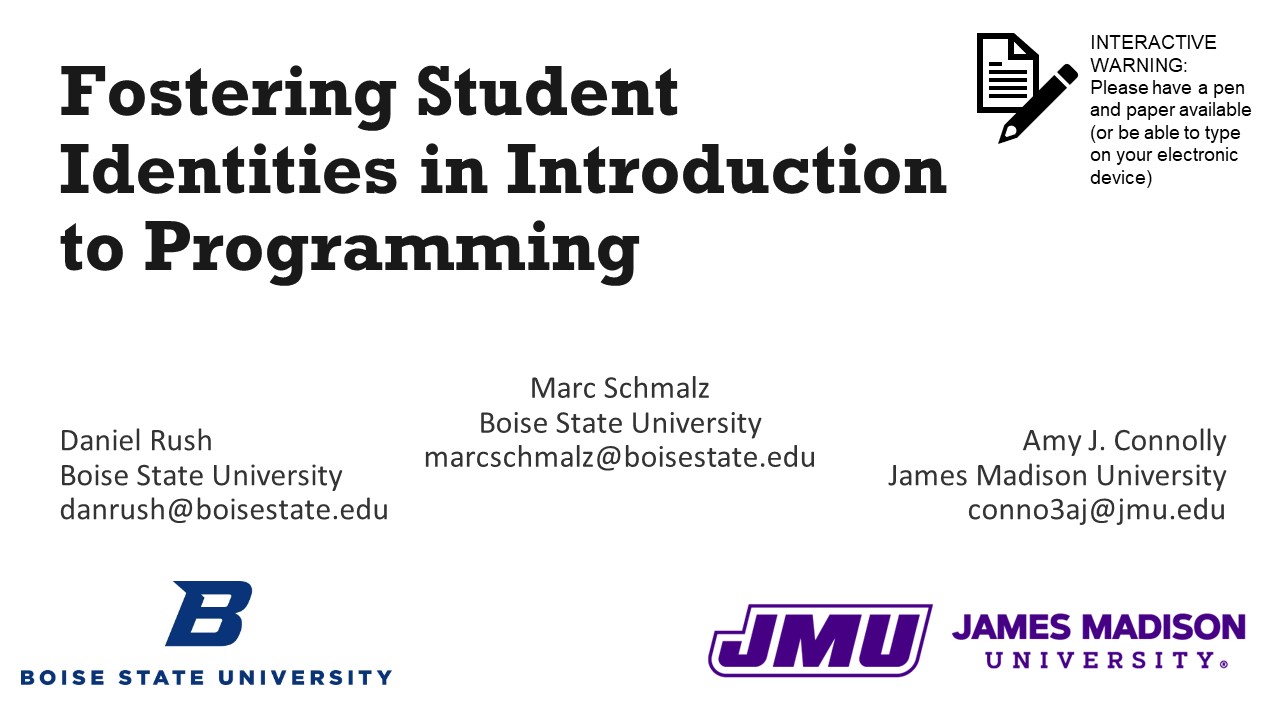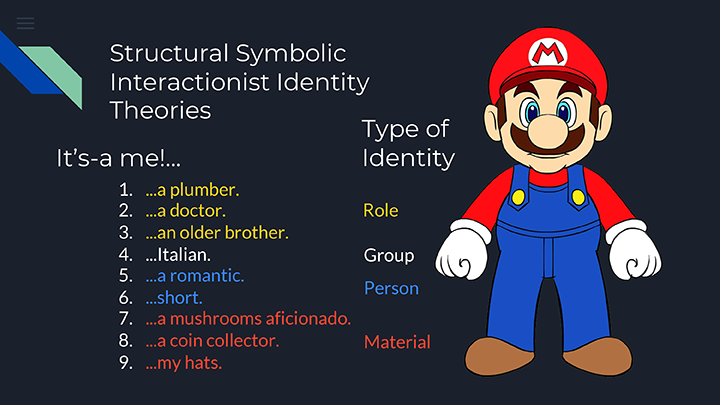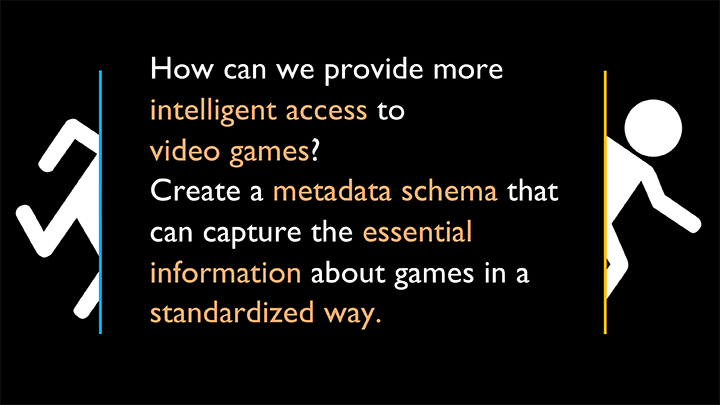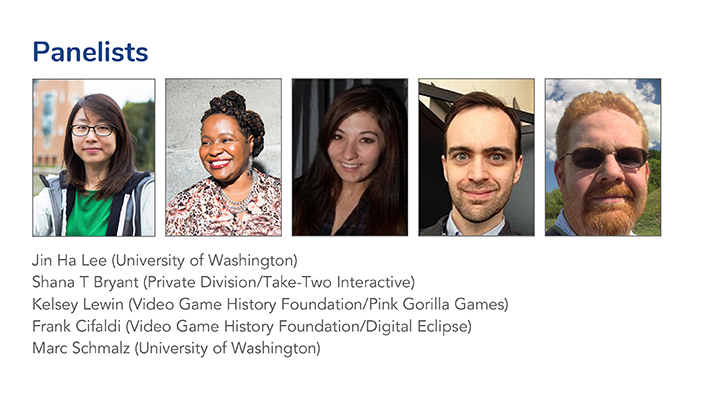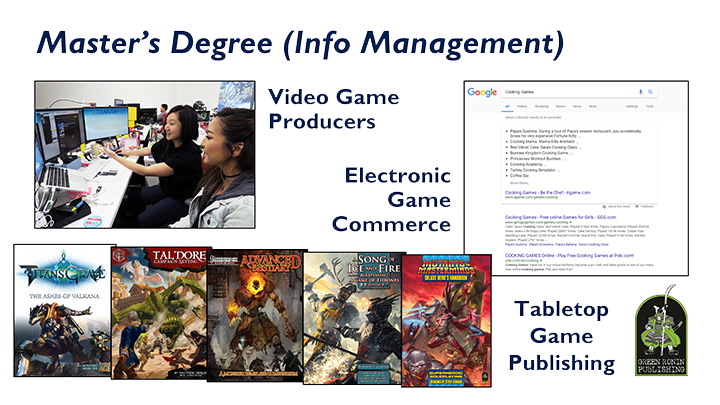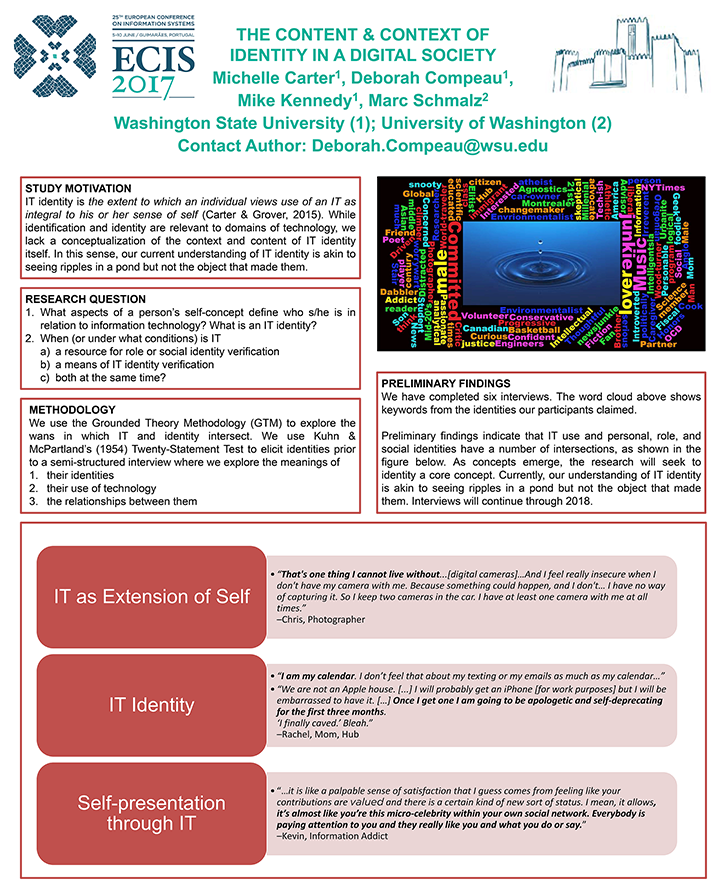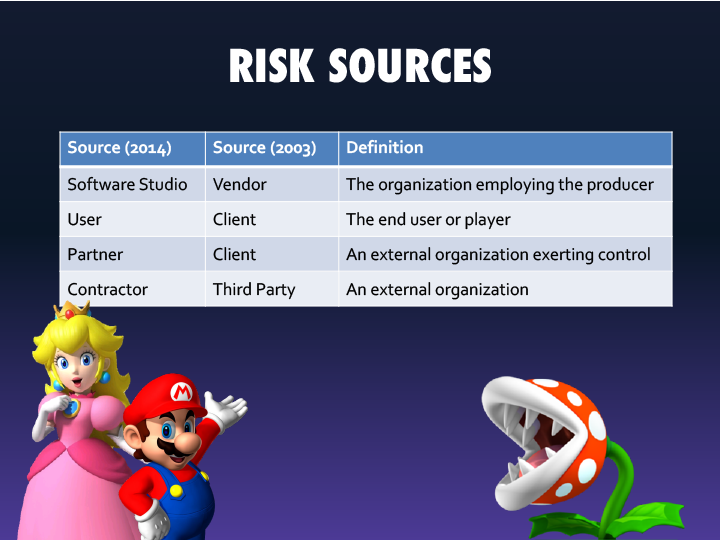Dr. Marc Schmalz, Ph.D.
Assistant Professor
Department of Information Technology and Supply Chain Management
College of Business and Economics
Boise State University
Department of Information Technology and Supply Chain Management
College of Business and Economics
Boise State University
Education
-
PhD in Information
Science
,
University of Washington, 2022.
Committee: Drs. Michelle Carter and Jin Ha Lee (co-chairs), Hala Annabi and Joseph Janes (members), and Daniel M. Ratner (GSR).
Dissertation: IT Identity and Risk in Software Development -
MS in Information
Science
,
University of Washington, 2020.
Granted upon reaching candidacy for doctorate.
-
MS in Information
Management
,
University of Washington, 2012.
Capstone: Risk Management in Video Game Development Projects
-
BS in History, Minors
in
Anthropology and Urban Planning & Development, Ball State University, 1994.
Academic Honors in Writing
Research
With more than two decades of experience as a technology and game professional, my research
interests lie at the intersection of information science and entertainment software development. Currently,
these
interests involve the ways in which IT development projects differ in the cultural industries when compared to
utilitarian segments commonly studied in the information systems (IS) literature. Specifically, I am
investigating
the ways in which identity impacts IS project behavior, using digital games as a highly salient context.
Publication
Refereed Journal Articles
Refereed Conference and Workshop Proceedings
Other Academic Contributions
Presentation
-
Invited to plenary discussion: Efficient IT Project Portfolio Management: A Gap Between Theory and Practice. Hosts: Fenja Schulte and Samantha Webster (Leibniz Universität Hannover). Fellow Panelists: Dr. Deepak Khazanchi (University of Nebraska Omaha) and John James (University of Wollongong). 20th International Research Workshop on IT Project Management (IRWITPM). Nashville, Tennessee, USA, December 13, 2025.
Summary: At the 20th Annual International Research Workshop on IT Project Management (IRWITPM), we held a 90-minute plenary discussion in IT Project Portfolio Management (ITPPM). I tried to represent small and medium businesses that may not have formal ITPPM teams or processes, but still manage portfolios in practice.
Panelists participated in the following discussion topics :- Roles and Responsibilities within ITPPM
- Structure and Governance of ITPPM
- Collaboration with key stakeholders
- Influence of informal relationships or personal networks on portfolio decisions
- Contribution to realizing strategic value from IT investment
- Efficiency/Inefficiencies in ITPPM
-
Schmalz, M.
(2025).
Identifying and Balancing Competing Definitions of Risk on Digital Game Development Projects.
20th International Research Workshop on IT Project Management (IRWITPM). Nashville, Tennessee, USA, December 13, 2025.
Abstract: Digital game development projects involve complex, multidisciplinary teams with different definitions of project success. Unlike utilitarian software projects, games have risk factors that arise from their unique context. IS project management research has largely ignored digital game development projects. In this research in progress, we answer the call for more research about unique contexts such as digital game development. We assert that in order to properly manage project risks, they must be clearly defined. How risks are defined will affect how they are managed, and ultimately, the success or failure of the project. We propose a qualitative case study to investigate how team members in digital game projects conceptualize, define and manage project risks. This proposed work contributes to theory by investigating and supplementing existing theoretical models of risk and risk management. This work will contribute to practice by improving risk management in a unique context to inform best practice.
-
Schmalz, M.
(2024).
Conceptualizing Software Development Project Risk.
AMCIS 2024 Proceedings. Salt Lake City, UT, USA, August 14-17, 2024.
Abstract: Our attempts to control risks associated with our software projects have given rise to a multitude of formal and informal classification schemes for factors that can negatively impact a software project. Despite this work, we have seen slow improvement in project success rates in an increasingly complicated domain with overlapping, inconsistently applied definitions of our major concepts. The research agenda detailed here promises to review past work regarding the conceptualization of software development project risk, analyze it using current best practices for taxonomy development and evaluation, and then re-organize it into an updated taxonomy intended to help researchers and practitioners better understand the domain and improve project success rates.
-
Schmalz,
M.
, Connolly, A., & Rush, D. (2023).
Fostering Student Identities in Introduction to Programming.
ISCAP Proceedings 2023. Albuquerque, NM, November 1-4, 2023.
Abstract: IS curricula typically include at least one course that introduces students to principles of programming in an object-oriented language. The literature is split on whether this language should be Python, Java, C# or something else. No matter the language, students in an IS major or minor can be resistant and unprepared to learn programming or any topic involving math skills (unlike those studying Computer Science or Engineering). Some researchers have investigated how to make the course more accessible for beginning students. Students' own resistance and lack of self-confidence can make teaching this course challenging. If student apprehensions are not managed, programming courses can directly lead to high rates of attrition from the IS major, particularly by underrepresented students who do not see themselves reflected in mainstream role models. We suggest that a new approach is needed to reach all IS students and to help them to both see the value of learning how to code in an object-oriented language and to connect that value to their individual sense of identity. We present an assignment used in an introduction to programming course that seeks to make individual and multi-faceted identities salient throughout the course by allowing students to work through these identities and to observe relevant connections to themselves in the course. This assignment was developed based on the instructor’s research expertise in identity theory. This teaching approach has helped the instructor to build more relevant and engaging examples for students and to dynamically change assignments each semester. This practical, hands-on approach applies theory to fostering students' fledgling identities as future IS professionals.
-
Schmalz,
M.
, Snyder, K., Morris, L., Cherrington, C., Disher, T. & Lee, J. H.
(2022). Evaluating a Taxonomy for Video Game Development Artifacts: Archival Taxonomies
in Highly Innovative Domains. 18th International Conference on Digital Preservation.
Glasgow, Scotland, September 2022.
Abstract: Digital game development is innovative and intersectional, producing cultural texts in an emerging field across new technology, physical, and digital media. As such, it offers fertile ground for designing and evaluating structures to help creators, information professionals, and others organize and preserve new domains, and to expand the processes of knowledge organization. Participants classified digital game development artifacts from one online and two physical archives. Data were analyzed with mixed methods, generating recommendations for improving the taxonomy and insights on evaluation framework.
Keywords: Metadata, Video Games, Taxonomy Evaluation, Digital Archive. -
Invited to interview as guest expert on location-based information privacy. FTC accuses Idaho data company of selling sensitive location data. KTVB, Boise, ID. Originally broadcast August 30, 2022.
Summary: Federal regulators have sued a data broker they accuse of selling sensitive geolocation data from millions of mobile devices, information that can be used to identify people and track their movements to and from sensitive locations, including reproductive health clinics, homeless shelters and places of worship.
The Federal Trade Commission on Monday sued Idaho-based Kochava Inc. amid a charged debate over the privacy of individuals who may be seeking an abortion in the wake of the Supreme Court’s ruling in June ending the constitutional protections for abortion. Although it’s not the first case the FTC has brought against a data broker, experts say it is the first one involving health care data and referencing reproductive health clinics.
-
Schmalz,
M.
, Carter, M., Lee, J.
(2019).
The I in
Team: IT Identity and Project Behavior
.
Proceedings of the 2019 Americas Conference on
Information
Systems
. Cancún, México, August 2019.
Abstract: Software project failure continues to be a concern and managing risk our best hope of project success. While IS literature has investigated the role of culture in projects, such cultural work is largely limited to the management of multinational project work and focused on ethnic or national identities and their impact on enterprise-level system development. Recently, information system researchers have begun to focus on how a user’s identities—their internalization of cultural meaning—can affect adoption and use of technology, but identification with technology may also impact its development. This proposed study will examine the ways in which worker identification with the technological outcome of a project might affect risk behavior, and will include digital game development as a highly salient context. The results will inform both theory and practice, contributing to IT identity research as well as best practices for project and risk management in software development.
Keywords: IT project management, risk management, IT identity, digital games. -
Schmalz,
M.
(2019). The UW iSchool Game Research Group.
2019 Virtual Symposium on Information &
Technology in the Arts and Humanities: Video Games and Information Science
. Association for
Information Science and Technology (ASIS&T). April 4, 2019.
Program Description: This session presents the work of the GAMER Group at the University of Washington Information School. The GAMER Group was founded by Dr. Jin Ha Lee in 2011 as a home for research on organizing and providing access to video games and related materials, focusing on the development of the Video Game Metadata Schema (VGMS). This project proposed and continues to develop a conceptual model and metadata schema for the cataloging and classification of digital games as cultural objects. Since then, Dr. Lee and her advisees have embarked into research on a number of game-related studies, including work with VR in libraries, augmented reality games, and game development. Marc Schmalz, a doctoral candidate at the UW iSchool and one of Dr. Lee’s current advisees, presents information on the GAMER Group’s latest work. -
Schmalz,
M.
, Lee, J. Bryant, S. T.,
Lewin, K, & Cifaldi, F.
(2018).
Organizing and Preserving Game Development Artifacts. Panel presented at PAX West
2018, Seattle, WA, 3 September 2018.
Program Description: While game preservation has gained popularity among creators, academics, and cultural heritage institutions, little public preservation work has focused on development artifacts, such as artwork, game design documents, musical scores, test builds, and marketing materials. The Game Research Group at the University of Washington has teamed up with the Video Game History Foundation to solve the problems of preserving and organizing these artifacts. -
Lee, J.,
Windleharth, T., Keating, S., Schmalz, M., Cho, H., &
Yip, J.
(2017). Quests in the Ivory Tower: University of Washington GAMER Group. Panel presented at
PAX West 2017, Seattle, WA, 4 September 2017.
The GAMER Group is a research team that studies organization, preservation, and use of video games at the University of Washington in Seattle. Hear six members of the team provide rapid-fire summaries of their research in various topics including video game classification, digital art preservation, games and learning, the game industry, ARGs, etc. Participate in an open Q&A to ask the team your questions about games, research, and academia and explore ways to collaborate on various research projects. -
Carter, M.,
Compeau, D., Kennedy, M., & Schmalz, M.
(2017).
The Content
and Context of Identity in a
Digital Society
. Proceedings 25th European Conference on Information Systems (ECIS 2017).
Poster presented
at
25th European Conference on Information Systems, Guimarães, Portugal, 5–10 June 2017.
(Author order alphabetical)
Abstract: Our team has undertaken a study designed to explore the context and content of IT identity in a digital society. The work involves conducting semi-structured, reflective interviews—based on the results of a 20 Statements exercise—and analysis based on grounded theory. Our initial findings indicate that our participants have complex relationships with a range of IT that has become embedded in their daily lives, and provide evidence in support of IT’s role as a medium, determinant, and consequent of identity. Further, we see the emergence of weak and strong IT identities and the emergence of a weak anti-IT identity. By iterating on our processes and reflecting on our results, we have been able to tune our methods and inform future recruitment goals. Moving forward, we expect that expanding the diversity in our group of participants will reveal greater insights into the ways that participation in a digital society influences the formation and expression of one’s role, group, personal, and IT (or anti-IT) identities. -
Lee, J.,
Windleharth, T., Yip, J., & Schmalz, M.
(2017). Impact of
Location-Based Augmented Reality Games on People’s Information Behavior: A Case Study of Pokémon
GO.
Proceedings of iConference 2017. Paper presented at iConference 2017, Wuhan, China, 22–25 March 2017.
Abstract: Location-based augmented reality games that blend real-world experience with virtual world gameplay are becoming increasingly popular. We aim to improve our understanding of how these new types of games will impact people’s information behaviors in both physical and virtual places, specifically investigating the case of Pokémon GO. We conducted over 100 hours of field observation of Pokémon GO players in numerous public places, monitored over 200 online communities related to the game, and conducted interviews of 30 players. Our key findings include observation of the emergence of ad-hoc information grounds in physical spaces where much of the information sharing occurred, as well as a crowdsourced, data-driven approach in problem solving and information sharing in online environments. We discuss the common types of information sharing that occur in both of these environments in detail, and identify areas for future research.
-
Schmalz,
M.
, Finn, A., & Taylor, H.
(2014).
Risk Management in Video Game
Development Projects
. 47th Hawaii International Conference on System Sciences (HICSS), pp.
4325-4334. Paper presented at 47th Hawaii International Conference on System Sciences, Waikoloa, HI,
6–9 January 2014. http://doi.org/10.1109/HICSS.2014.534.
Abstract: The video game software industry has a reputation for volatile, chaotic projects yet, in spite of dramatic growth in global revenues, surprisingly little academic work has examined these projects. This study reports a preliminary investigation into this under-researched area. We interviewed eight video game producers from a range of companies, using a critical incident method to explore risk management practices and risk perceptions. Our results revealed that in lieu of formal risk management practices, these managers relied on prototyping, pre-production decision points, and agile approaches to contain risk on their projects. Among the risk factors mentioned, two are specific to the unique context of video game development. The risk of failing to match the development strategy to the project was identified as a major cause of problems during the development process, and a new risk—the ‘fun factor’—was a key element threatening the success of the final game release.
Teaching
-
Boise State University,
Institution
of higher education and research.
(2022-Present).
Boise, ID.
Assistant Professor- Assistant Professor (2022-Present)
- Taught Introduction to Programming (ITM 225) (2022-Present).
- Taught Web Application Development (ITM 325) (2022-Present).
-
University of Washington,
Institution of
higher education and research.
(2010–2022).
Seattle, WA.
Instructional Designer; Lecturer; Doctoral Student; Academic Student Employee.- Instructional Designer (2021-2022)
- Co-Designed Product and Project Management (IMT 587) (Online)
- Lecturer (2019–2022)
- Taught Special Topics in Informatics: Games and Information (INFO 498) (Winter 2022)
- Taught Metadata for Interactive Media (LIS 536) (Autumn 2021)
- Taught Client-Side Development (INFO 340) (Summer-B 2020)
- Taught Project Management In Informatics (INFO 481) (Summer-B 2019).
- Taught Databases and Data Modeling (INFO 330) (Summer-A 2019).
- Doctoral Student (2015–present)
- Assisted Travis Windleharth with Special Topics in Informatics: Games and Information (INFO 498) (Autumn 2019).
- Assisted Pavel Dolezel with Principles of Information Project Management (IMT 587) (Spring 2018).
- Assisted Mike Doane with Introduction to Information Architecture (IMT 535) (Winter 2018).
- Assisted Richard Sturman with Analytic Methods for Information Professionals (IMT 570) (Autumn 2017).
- Assisted Richard Sturman with Information Systems Analysis and Design (INFO 360) (Spring 2017).
- Assisted Mike Doane with Information Systems Analysis and Design (INFO 360) (Winter 2017).
- Co-taught Metadata for Interactive Media (INFX 536) with primary instructor Dr. Jin Ha Lee (Autumn 2016).
- Assisted Dr. Hans Jochen Scholl with Enterprise Information Systems Analysis and Design (IMT 541) (Winter 2016).
- Assisted Mike Doane with Introduction to Information Architecture (INFO 535) (Autumn 2015).
- Academic Student Employee (2010)
- Assisted Dr. Hazel Taylor with Project Management for Informatics (INFO 481) (Autumn 2010).
-
Washington State University,
Institution
of higher education and research.
(2020–2022).
Seattle, WA.
Lecturer- Lecturer (2020–2022)
- Taught Data Management (MIS 372) (Winter 2021).
- Taught Enterprise Business Development (MIS 325) (Autumn 2020).
Grants
-
Lee, J. H. (Project Director),
Schmalz,
M.
(Graduate Research Assistant), Cifaldi, F.
(Research Partner), Lewin, K. (Research Partner), Brown, T. (Research Partner). April 18,
2018.
A Conceptual Data Model and Schema for Curating Collections of Video Game
Development Artifacts
. Institute of Museum and Library Services National Leadership Grant for
Libraries LG-86-18-0060-18-0. $254,072.
The University of Washington Information School will conduct a two-year research project to create a conceptual data model and metadata schema for describing and representing artifacts related to the development of digital games. Unlike most collections that focus on final, released games, these collections of artifacts preserve the often inaccessible historical contexts of one of the most important global media forms, and one to which the U.S. makes significant contributions. This work will result in a deeper understanding of how to represent entities and relationships in the domain of video games and interactive media development, contributing to national conversations about the description of complex, interrelated objects in library and museum collections. The results of this project will enable catalogers to describe video games and related materials more accurately and thoroughly, improving the quality of metadata shared among organizations and increasing access to the items. -
Porter, J. (Principal), Lee, J. H.
(Co-Principal), Windleharth, T. (Co-Principal),
Schmalz,
M.
(Co-Principal). September 1, 2017.
Game Accessibility Metadata,
Excellent! (GAME!) Project
. Harlan Hahn Grant. $3,000.
The objective of the GAME! project is to improve our understanding of the situated real-world accessibility needs of gamers with disabilities. We seek to learn how different impairments interact with specific mechanics and interactions found in games to create both enabling and disabling experiences. From these findings, we plan to create descriptive standards to support more meaningful labeling and organization of commercial games according to their accessibility to users with all levels of ability. Through these descriptive standards, we hope to empower gamers to better navigate the landscape of inconsistent accessibility in mainstream gaming. By giving them greater insight into games’ mechanics and interaction expectations, they can make informed decisions about what they want to play, and in turn avoid unnecessarily disabling situations. We are conducting research that will 1) describe and represent accessibility requirements of gamers with motor impairments, and 2) identify and promote accessibility tools and technologies used by them. We will identify, categorize, and describe specific impacts and levels of impairment related to video game play from a user-centered approach which focuses on ability, rather than clinical diagnoses. We will also collect information on professionally-created hardware and software accessibility tools, as well as user-developed tools and techniques created by a growing accessibility "home brew" community.
Academic Honors
-
Research
- Nominee: AMCIS Best ERF Paper (2025)
- Winner: AMCIS Top 25% Paper (2025)
- Nominee: AMCIS Kaufmann Paper Award (2024)
- Winner: AMCIS Top 25% Paper (2024)
- Winner: iConference Best Short Paper (2020)
- Nominee: iConference Most Interesting Preliminary Results Paper (2017)
-
Doctoral Consortia
Invitations
- Hawaii International Conference on System Sciences (HICSS) (2019)
- Americas Conference on Information Systems (AMCIS) Mid-Stage Track (2018)
Service and Professional Memberships
-
Service to Boise State University College of Business and Economics
- Recruitment Committee, Information Technology and Supply Chain Management Department (2023-2025)
- GIMM Coordination Committee (2023-2025)
-
Service to the
Association
for Information Systems (AIS)
- Secretary, Special Interest Group on Game Design and Research (SIGGAME) (2024-2025)
- Review Coordinator, 2025 Americas Conference on Information Systems
- Review Coordinator, 2024 Americas Conference on Information Systems
- Emergent Research Form Session Chair, 2019 Americas Conference on Information Systems
-
Service to the
University
of Washington Information School
- PhD Admissions Committee Student Representative (2019-2020)
- Communications & Outreach Coordinator, Doctoral Student Association (2018-2019)
- Chair, Doctoral Student Association (2017-2018)
- Social Committee Coordinator, Doctoral Student Association (2016-2017)
-
Ad-hoc Journal Reviews
- Communications of the AIS (1)
- Management Information Systems Quarterly (1)
- International Journal of Information Management (1)
-
Ad-hoc Conference Reviews
- Americas Conference on Information Systems (7)
- Hawaii International Conference on System Sciences (5)
- Digital Games Research Association (4)
- International Conference on Information Systems (3)
- European Conference on Information Systems (1)
- Association for Information Systems Special Interest Group on the Adoption and Diffusion of Information Technology (1)
- Dual IFIP EGOV-ePart Conference (1)
-
Active Memberships
-
Association for Information Systems (AIS)
- AIS Special Interest Group on Social Inclusion (SIGSI)
- AIS Women’s Network College
- AIS Special Interest Group on Digital Games (SIGGAME)
- AIS Special Interest Group on IT Project Management (SIGITProjMgmt)
- Project Management Institute (PMI)
-
Association for Information Systems (AIS)
-
Past
Memberships
-
Association for Computing Machinery (ACM)
- ACM Special Interest Group on Management Information Systems (SIGMIS)
- Project Management Institute (PMI)
-
Association for Computing Machinery (ACM)
Professional Work
-
Self-Employment,
Data, information, and publishing services.
(2010–present).
Seattle, WA.
Consultant; Data Analyst; Business Intelligence Data Analyst- Consultant; Data Analyst; Business Intelligence Data Analyst
- Performed data analysis using SQL queries, Excel, and Tableau to derive business intelligence from an Amazon Redshift (PostgreSQL) enterprise data warehouse for a leading casual game developer.
- Performed data structure, information organization, desktop publishing, editing, and software engineering services for a learning management system (LMS) aimed at K-12 educators.
- Integrated secondary taxonomies into the primary article management system for technology topics for an online publisher.
- Conducted information architecture, data acquisition and analysis, market analysis, and software engineering services for an e-commerce solution provider.
- Designed and implemented data collection tools for a Children’s Hospital cancer medication adherence study.
- Performed IT support and information management duties for the Center for Educational Leadership.
-
Green Ronin Publishing LLC.,
Game design studio and
publisher.
(2004–2020).
Seattle, WA.
Director of Electronic Publishing- Director of Electronic Publishing
- Managed partnered sales and reporting of electronic and print-on-demand publications.
- Performed desktop publishing services for print, print-on-demand, and electronic products.
- Managed online advertising and promotions and designed electronic and print ads.
- Represented company at consumer trade shows.
-
University of Washington,
Institution of higher education and research.
(2011–2012).
Seattle, WA.
Academic Student Employee- Academic Student Employee
- Designed, implemented, and maintained Web applications for the School of Nursing (Summer & Autumn 2011).
- Performed IT support duties for the Department of Global Health (Winter 2012).
-
RealNetworks, Inc.,
Casual computer game sales and production.
(2007–2009).
Seattle, WA.
Technical Production Coordinator- Technical Production Coordinator
- Designed, managed, maintained, and developed product tracking and reporting intranet applications.
- Controlled public beta participation program and deployed beta games using proprietary DRM technology.
- Enforced product release schedule and worked with deployment staff.
- Coordinated games usability testing and trained staff in lab use.
- Created and submitted ESRB ratings videos and applications.
-
Teachfirst, Inc.,
Professional development for K–12 educators.
(2006–2007).
Seattle, WA.
Software Engineer; Technology Program Manager- Software Engineer; Technology Program Manager
- Defined and built a subscription-based professional development learning management system for elementary and secondary educators.
-
The Game Mechanics, Inc.,
Electronic publishing and
game design studio.
(2002–2010).
Seattle, WA.
Treasurer; Secretary; Web Manager- Treasurer; Secretary; Web Manager
- Managed the business operations of an electronic publishing corporation.
- Carried out all government reporting and compliance duties and maintained the books and accounts.
- Led the incorporation process, serving as registered agent, incorporator, and board member.
- Authored the company business plan, articles of incorporation, and all required forms and documentation.
- Planned, designed, developed, and managed the company Internet presence including the company Web site, message boards, and partnered sales site.
- Developed and maintained the company release schedule, explored alternate revenue streams, participated in licensing and contract negotiation, and performed financial analysis on projects and products.
- Performed desktop publishing and editing services for print and electronic products.
- Represented company at consumer trade shows.
-
Loudeye Technologies,
Internet multimedia
technologies and services.
(1999–2001).
Seattle, WA.
Java Developer; Project Manager; Web Development Engineer- Java Developer (2001)
- Planned and authored Java servlets as part of a team on a regular product development, debugging, and release cycle.
- Authored technical specs and user documentation for internal development tools.
- Project Manager (2000–2001)
- Authored requirements documents, technical specs, and end-user documentation for Web applications and maintained code on existing applications as part of a team on a regular product development, debugging, and release cycle.
- Participated in the corporate product planning process.
- Web Development Engineer (1999–2000)
- Developed Internet and intranet Web applications as part of a team whose work integrated with an enterprise-wide media production and syndication system on a regular product development, debugging, and release cycle.
-
SolutionsIQ,
Software consulting, contracting, and development.
(1999).
Bellevue, WA.
Contract IS/Web Development staff for Traveling Software, Inc.- Contract IS/Web Development staff for Traveling Software, Inc.
- Developed Internet and intranet Web applications.
-
Game producer and retail chain,
(1995–1999).
Renton, WA.
Online Content Developer; Cyber Relations Manager; Online Forum Manager- Online Content Developer; Cyber Relations Manager; Customer Services Rules Specialist
- Managed the staff responsible for Internet services, activities, and events.
- Consulted with product team clients to identify strategic Internet opportunities in the areas of content, activities, events and games, sales and marketing, and product support.
- Re-architected corporate Web site to fit new strategic marketing goals, integrate corporate acquisitions, and facilitate international offices.
- Online Forum Manager (dateRange)
- Built and maintained corporate presence on major ISPs and in online communities.
- Represented company at consumer trade shows.
- Customer Services Rules Specialist (dateRange)
- Represented company via Internet, phone, and conventions, participated on product teams, and developed applications to boost team performance.
Computer Experience
-
Operating Systems
Windows, MacOS, iOS, Ubuntu Linux.
-
Applications and
Frameworks
Visual Studio (Community, Code), Office (Word, Excel, PowerPoint, Outlook, Teams, Project, Visio), Chrome, Firefox, Internet Explorer, Safari, Adobe Creative Suite (Photoshop, InDesign, Illustrator, Dreamweaver, Acrobat, Premiere Pro), Oxygen XML Editor, ColdFusion, SQL Server, MySQL Workbench, R Studio, Amazon Redshift, Internet Information Server (IIS), Apache HTTP Server, Apache Subversion, Drupal, WordPress, GitHub, Visual SourceSafe (VSS), RDC, iMovie.
-
Languages and Standards
HTML (DHTML, XHTML, HTML5), Visual Basic, C#, CSS, Ruby, PHP, Python, JavaScript, SQL (Transact-SQL (T-SQL), PostgreSQL, MySQL), XML (XSLT, XML Schemas, XSD, XPath), R, R Markdown, CFML, ASP.




